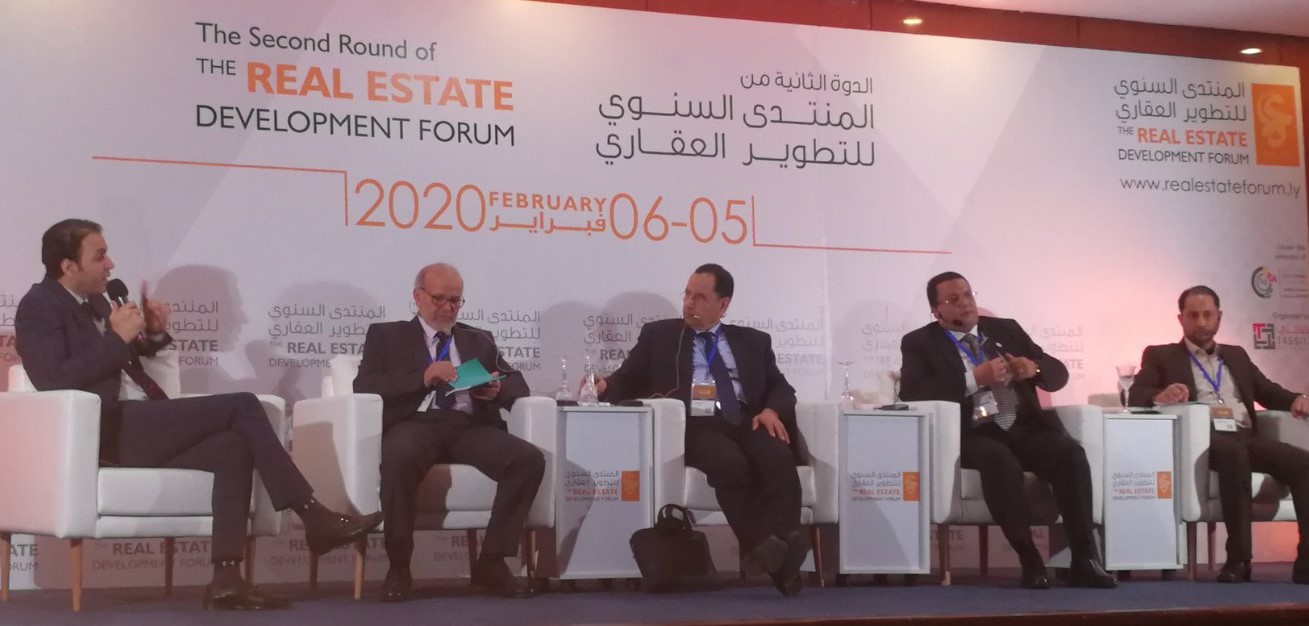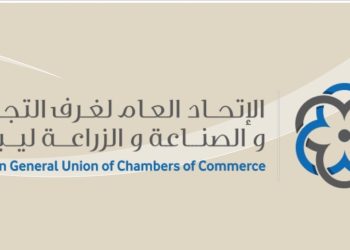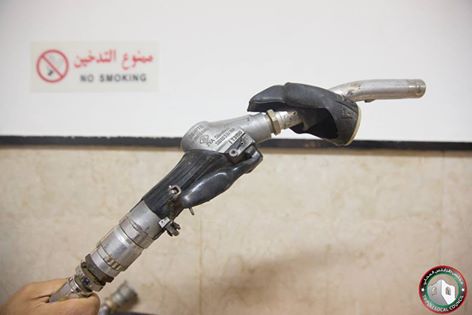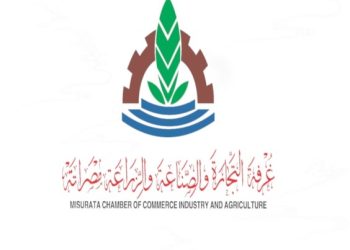By Sami Zaptia.

London, 6 February 2020:
Several possible solutions were proposed and discussed in Tunis today on the final day of the Second Libyan Real Estate Development Forum as participants broke up into closed discussion groups.
Some of the fundamental problems raised that face the sector include the unravelling of the nationalization / forced seizure of private real estate by the Qaddafi regime and the closure of the Real Estate Registry since 2011 due to Libya remaining stalled in a transitional political stage.
The result of the continued closure of the Real Estate Registry has resulted in the banks refusing to lend for real estate projects in fear of lack of security for their investments. Its closure also means that no real estate in Libya could be ‘‘officially’’ bought and sold since 2011. This has supressed sector growth when it comes to large scale projects.
In reality, however, property has continued to be bought, developed and sold on a private basis through a private contract of sale. There is also investment – high risk investment in a highly inflated market – by SMEs and private individuals – but all without being able to register the transactions at the state Real Estate Registry.
The debate at the forum divided between the more conservative in nature who felt that a terra firma based on new, clear and strong post-Qaddafi era legislation was needed for investment in the sector to seriously progress, and the less risk averse who felt that either progress could be achieved sooner through minor changes or the activation of existing laws and processes.
The more proactive group of participants felt that to wait for Libya to achieve political stability would be unrealistic and pushed for short term solutions to solve the acute shortage of real estate in Libya, which would simultaneously activate the whole Libyan economy.
With regards to PPP between the private sector and the state, the Housing and Infrastructure Board (HIB), the state entity implementing billions worth of stalled real estate projects, reminded participants that its multi-billion 2008-2018 implementation plan was still incomplete – let alone any new projects.
On a positive note, it revealed that it was currently active in implementing three real estate projects and added that it identified several of its projects that are amenable to development through a PPP formula.
Possible solutions
With regards to providing guarantees for bank loans, it was suggested that insurance companies could provide some possible cover for some real estate investment bank loans. Other participants suggested loans being guaranteed by the long established but never activated state Loan Guarantee Fund set up to launch major loans for SME projects. Participants questioned why the state is not able to activate this organ.
The use of a blockchain system (online/cloud registration) for real estate registration, the development of a specific law for real estate investment, the reopening of the Real Estate Registry and the increased use of PPP in the sector were also raised as possible solutions to unblocking development in the sector.
Participants were almost united in the view that the Libyan state does not, and probably will not have in the short to medium term, the funds to activate the sector and that the sooner it accepts this and removes the barriers and obstacles to private sector participation the better for the sector specifically and for the Libyan economy on the whole.
https://www.libyaherald.com/2020/02/05/the-second-libyan-real-estate-development-forum-kicks-off-in-tunis-with-different-views-on-how-best-to-move-forward/
https://www.libyaherald.com/2018/10/19/ld-250-m-private-sector-real-estate-investment-fund-launched/







